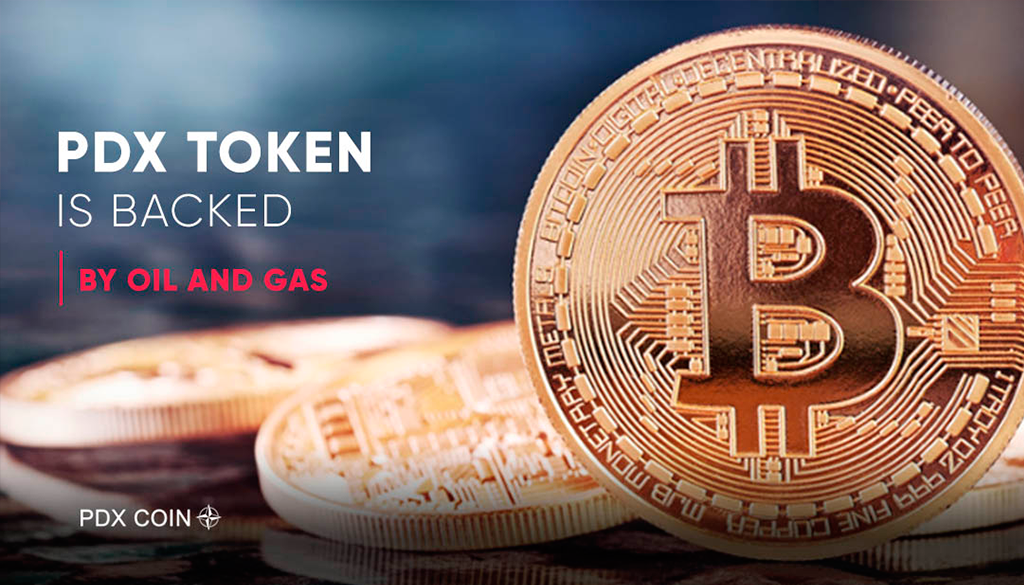There is no denying, financial solutions drive the world’s development and can help alleviate poverty. However, the latest Findex data shows that close to 2 billion people across the globe are still unbanked and, therefore, cannot sufficiently take care of their education, health and business needs due to lack of the most basic financial services.
Enter blockchain- the technology behind cryptocurrencies such as bitcoin, PDX, etc.
When Bitcoin came to the fore, cryptocurrency was simply viewed as a currency. However, with the rise of Initial Coin Offerings (ICOs), Security Token Offerings (STOs), and Initial Exchange Offerings (IEOs), the term ‘cryptocurrency’ is now somewhat redefined. There are 2400 + cryptocurrencies assets in existence today, with ICO-generated coins commonly referred to as ‘tokens.’
As a result, industry experts are heralding a new age of digital currencies that will transcend the physical boundaries of its predecessor (that is, fiat money) and, thus accelerate financial inclusion globally.

Blockchain- The Missing Piece to Financial Inclusion
Opening a banking account or using a debit or credit card is still a challenge for most individuals in developing countries (think Africa, Asia, Latin America and the Middle East) and as a result, cannot access financial services and products in a sustainable, fair and transparent manner. In addition, figures from a study by the International Finance Corporation indicates that more than 200 million small and medium enterprises (SMEs) in these developing countries lack access to financial services.
So, how can blockchain technology solve this?
• Enabling a seamless account opening process
Stats show close to 2.5 billion people across the globe do not have a digital identity, and this is one of the biggest hurdles to financial inclusion.
The reinforced regulatory landscape that resulted after the financial crisis tremendously increased the costs of anti-money-laundering compliance for banks (they have risen by close to 55 percent since 2011). As a result, many banks had to exit certain emerging markets which has left individuals with no meaningful financial services. European banks, for instance, had to reduce their cross-border lending to emerging markets by $700 billion in 2015.
The implication here is the lack of a viable financial infrastructure in developing nations has made it hard for banks to achieve their Know Your Customer (KYC) efforts in a cost-effective manner.
A robust blockchain solution could help create a decentralized model that enhances identity management and manages financial and social data. Additionally, the transparency and immutability of blockchain can help financial institutions reduce fraud and enhance Know Your Customer (KYC) processes, thereby reducing the challenges of costs and time associated with gathering personal information.
Opening a bank account will, therefore, be easier and cheaper for the unbanked and underbanked thanks to the low cost of transactions facilitated through blockchain.
• Reinforcing trust
The way blockchain works is it could decentralize the banking systems and provide everyone with a safer and faster way to verify information and enhance trust.
By leveraging a blockchain solution, microfinance institutions can create a decentralized framework where borrowers’ transactional history can be stored on a shared ledger, providing these institutions with real-time information about their borrowing and repayment histories as well as outstanding loans.
Moreover, the use of smart contracts can help automate many manual processes, for example, authorizing a loan after verifying a user’s economic identity. This means individuals and SMEs will be able to easily access microfinance loans and boost their entrepreneurial activities.
Blockchain could also help in enhancing transparency in the way governments allocate public funds especially in regions affected by poor governance and widespread corruption.
• Sending Remittances in a cost-effective manner
A report from World Bank estimates the annual remittance flows to low and middle-income currently stand at $550 billion and will become their largest source of external financing.
However, the current financial set up is characterized by many intermediaries who charge high fees, and this has introduced a lot of challenges into the remittance business. According to the World Bank’s Remittance Prices Worldwide database, it costs an average of 7-11 percent to send $200 from a Money Transfer Organization (including Western Union, Money Gram and Euronet Worldwide) or a bank in developing countries in the first quarter of 2019.
Blockchain or distributed ledger technology can provide a supportive infrastructure which could help reduce the cost of sending remittances. If fully deployed, this technology will remove the high fees and costs of third-party intermediaries such as credit and debit card providers, clearing houses and banks, thus facilitating near real-time and accurate transactions.
The PDX Token Economy
A number of banks have been exploring use cases for cryptocurrencies globally such as the Central Bank of Sweden as well as Canada among other countries. However, to become a cashless society and have a complete digital ecosystem do present some fairly complex challenges.
To tackle some of these challenges, PDX, a globally compliant digital currency, has been structured in such a way that it will become a leading safe-harbor tokenized store of value. PDX’s value inherent in a transferable digital token will enable holders to store and preserve wealth, and seamlessly engage in borderless financial transactions.
This innovative digital currency has the backing of underlying tangible assets, that is, physical reserves of crude oil and natural gas, and other energy assets. It offers all of the advantages of blockchain-enabled digital currencies while providing a verifiable asset base to protect its value, stability and security as a medium of exchange.
PDX will disrupt the way banking is conducted between cryptocurrencies and fiat currencies, and will build a unique, cutting-edge cryptocurrency exchange platform. PDX will initially be based upon the Ethereum-enabled blockchain platform, in order to provide a robust and decentralized method of verification, tracking and exchange. The Ethereum blockchain is expected to provide an auditable and cryptographically secure global ledger and will facilitate transactions with other familiar currencies and assets.
To accelerate this further, PDX will enable users to simply make transactions via a mobile app; a move which makes a lot of sense especially when you consider the fact that two-thirds of the 2 billion unbanked adults worldwide have access to mobile phones. Users will install a simple IOS or Android-supported application which runs to receive cryptocurrencies as simply as it does fiat money.
Essentially, this will enable the unbanked and underbanked to send remittances globally, constituting universal means of exchange. Users won’t have to pay currency fees while transferring money to different countries, as the sender and receiver will be able to transact the same digital currency.
These characteristics, together with a focus on transparency and regulatory compliance, position PDX Coin as a top safe haven digital currency capable of accelerating financial inclusion globally.
Looking Ahead
Statistics identify financial inclusion as a top enabler for 7 of the 17 sustainable development goals and that’s why there’s plenty of enthusiasm – even hype – over blockchain technology and how it can accelerate financial inclusion globally.
Blockchain technology, in essence, is a digital technology which is able to facilitate the exchange of assets over the Internet and, therefore, could give birth to a more efficient, transparent and frictionless society. And as long as governments and private sectors can work together, this technology will solve some of the challenges in regard to providing affordable and usable financial access.
That’s why we believe PDX, a digital currency that is at the core of a powerful new banking and financial services ecosystem based on encrypted and permissionless peer-to-peer (i.e. no middleman) payments and money transfers, globally, is well-positioned to solve multiple problems like financial exclusion in developing countries. This will consequently help in fostering economic growth, lowering income inequality and reducing poverty.
As always, we would love to hear from you. Please let us know what you think in the comment section below.





